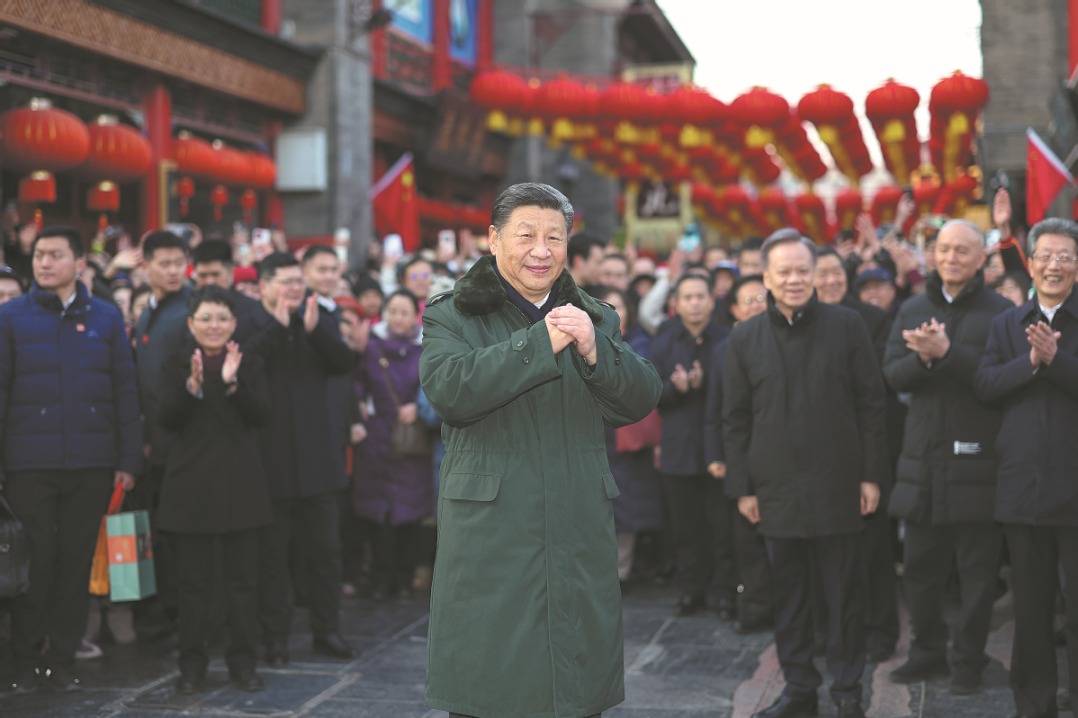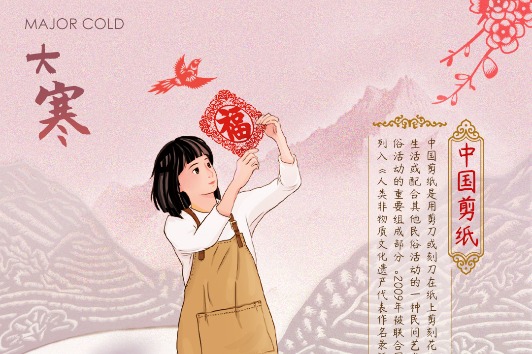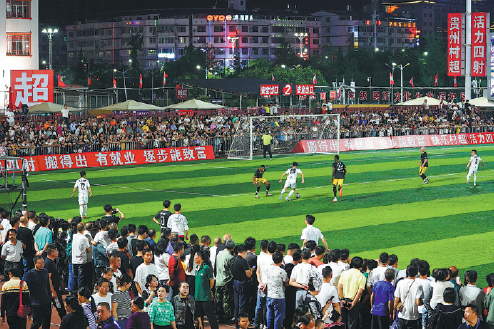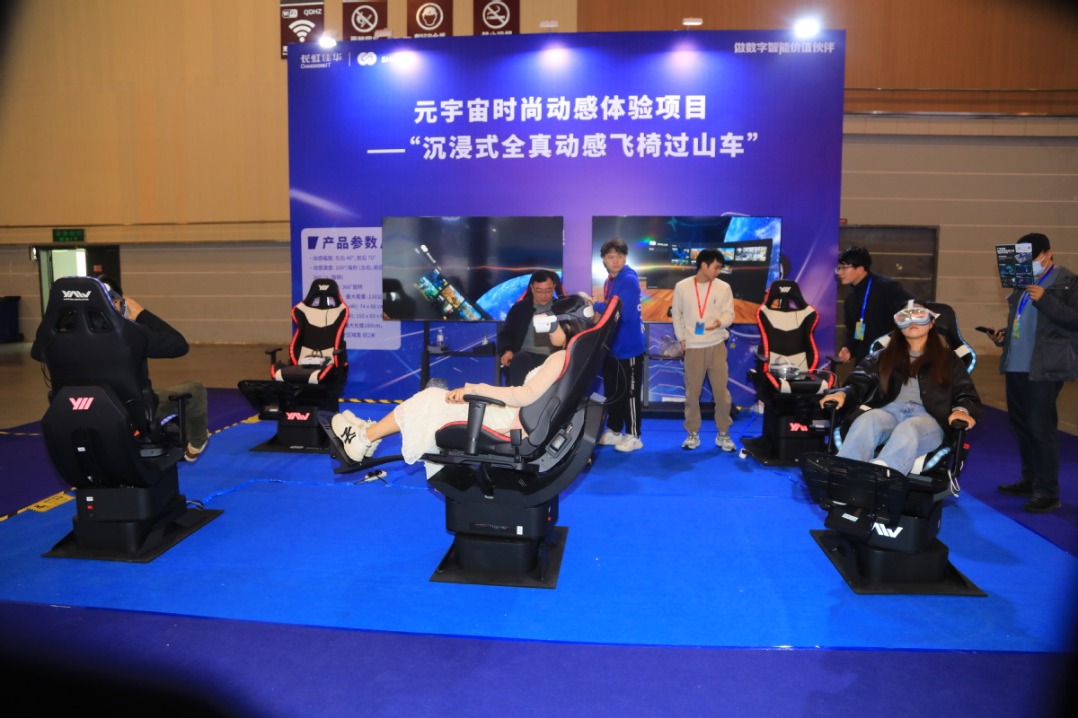Pertinence of rural priority has grown

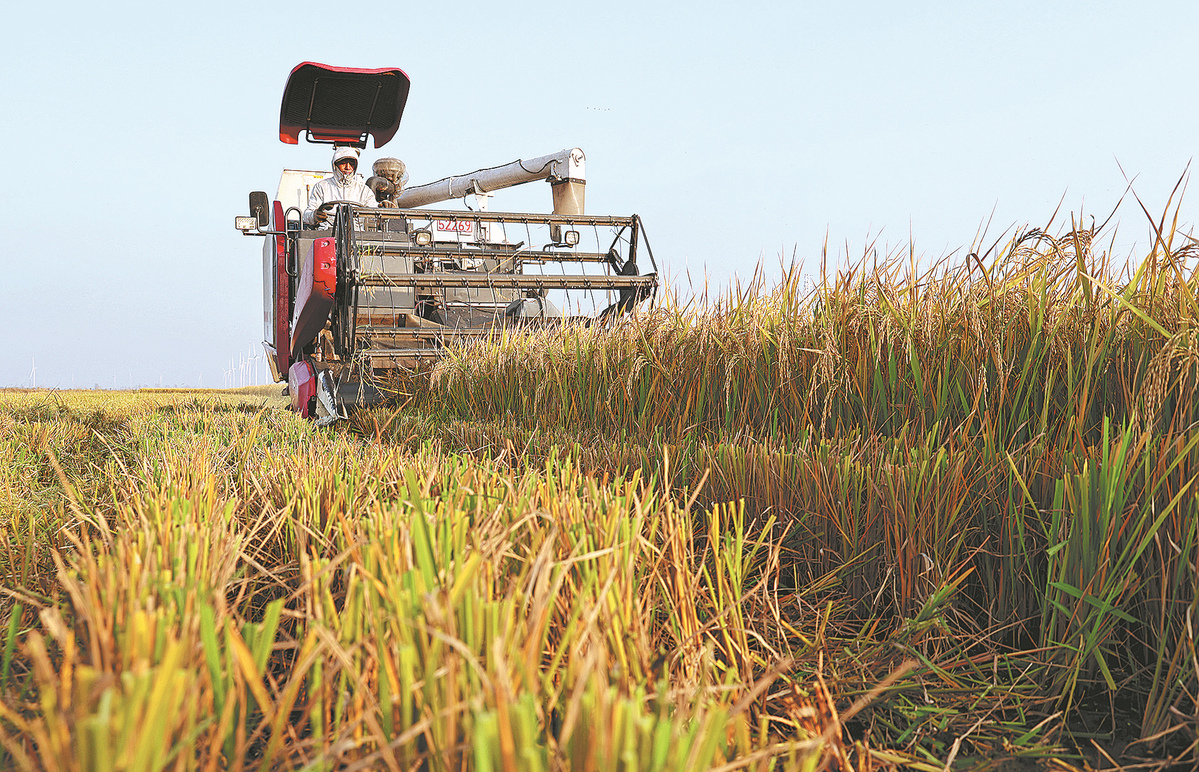
Editor's note: China has established a food security guarantee system at a very high level characterized by quality, efficiency and sustainability. China's food security has a stronger guarantee, along a steadier and wider path with Chinese characteristics, writes a veteran journalist with China Daily.
The Central Committee of the Communist Party of China and the central government are expected to issue its No 1 document of 2023 within weeks. If it follows past practice, the document will focus on the important policies and measures for rural development this year, with the aim of ensuring the country's food security and further improving the quality of life for rural residents.
The central government has focused on agricultural development in the No 1 document for 18 years, since 2004. The first document it has released each year since then has always been about rural development. Its efforts have paid off with the country announcing the eradication of extreme rural poverty in 2020 while keeping its grain output at above 650 billion kilograms for eight consecutive years.
Although agriculture makes up only about 16 percent of the national GDP, the fact that it feeds more than 1.4 billion Chinese people makes it a sector of special importance. The frequent famines worldwide as well as the cutting of food supply chains because of the Russia-Ukraine conflict give the Chinese more good reasons to safeguard its food security.
President Xi Jinping's metaphors of "To hold the rice bowl in our own hands" and "Well off or not, the key lies in villagers" have become a consensus of governments at all levels.
While the No 1 documents in the past years all centered on rural development, their focus has been adjusted in light of the changing situation. In the early years, policies were issued to encourage farmers to invest in the collectively-owned land. Then the agricultural tax was canceled to remove that burden on farmers. That was followed by a series of policies aimed at eradicating extreme poverty.
At present, the emphasis is on ensuring that those just out of poverty will not slip back into it at a large scale because of unforeseen events, on the vitalization of rural areas and on producing sufficient grain to ensure the country's food security.
Rural areas deserve the government's attention. While being the world's biggest agricultural country, the foundation for the country's agriculture is anything but solid. Feeding nearly 20 percent of the world's population on merely 7 percent of the world's cultivated land, China can tolerate no mistakes in its agricultural development.
To ensure that the cultivated land is all planted with crops and not abandoned, measures such as satellite screening and on-the-spot inspection are employed. Those using land intended for cultivation for other development purpose are strictly punished.
To improve the efficiency of agricultural work, farmers who can make little from their small plots are encouraged to transfer their land to skillful farmers or investors so that modern agricultural technologies can be employed. Thus the farmers become shareholders who can also get an income by working on the new farms.
Believing that national rejuvenation can't be realized unless the vulnerable rural population fully enjoys the benefits of the country's development, the central government has been introducing medical insurance and pension systems for the rural areas. So far, 95 percent of rural residents have joined the medical insurance mechanism especially designed for rural areas.
Though the pension system is still in the trial stage and the pension rural seniors can get is still small — about 2,000 yuan ($298) per year and about 10 percent of the average urban pension — it is anticipated that the sum will keep rising and this year's No 1 document will include arrangements to that purpose.
To create enough jobs for rural laborers is a big challenge for the country. Nearly half of the about 600 million rural population works in non-agriculture jobs either near their homes or far away in cities and towns. The introduction of modern farming technologies will liberate more farming hands which means creating jobs in other sectors.
Adding to the challenge, the COVID-19 pandemic of the past three years slowed down the country's economy, and millions of jobs were lost. The central government has taken a series of measures to support companies, especially the small and medium-sized ones. Such companies provide 80 percent of the country's jobs, particularly the low-end jobs that fit rural migrant laborers.
Given the central authority's strong governance ability and the CPC's consistent prioritizing of rural issues and ensuring our food security, we should have confidence that the country will have a stable foundation on which to emerge from the present difficulties.
The author is former deputy editor-in-chief of China Daily.
kangbing@chinadaily.com.cn
















